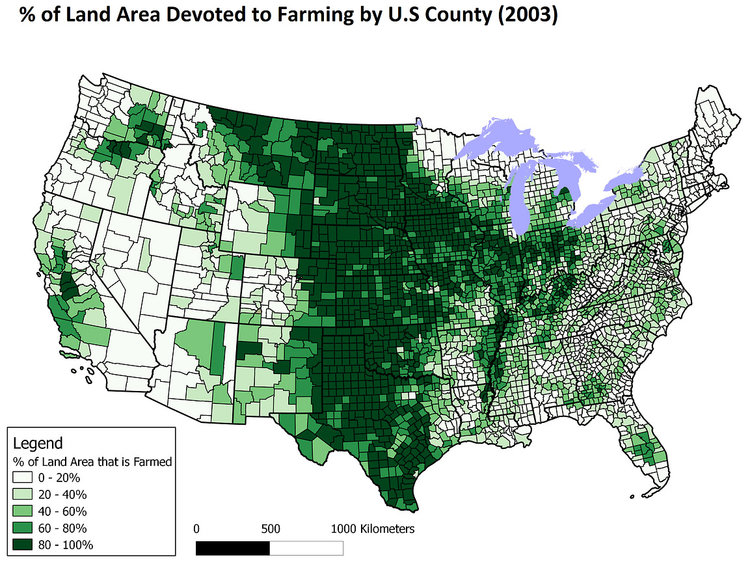Quote:
Originally Posted by 10023

The market decides this. If people are needed to farm then it will be lucrative to farm, and people will do it. If there is demand for food produced by small farmers and not big agribusiness, then it would command a premium (as it does in some places, and from a small portion of the population like myself).
If you really want to help rural America, then it’s not subsidies but rather regulation around industrial farming practices that are needed. There would be better food, more jobs on the farm, and higher prices. I would be in favor of this, but I doubt a majority of Americans would agree with me.
|
Interestingly, the parts of rural America that AREN'T suffering much are the areas mostly dedicated to farming. The parts of rural America that ARE suffering tend to be the areas with little farming. I'm going to repeat something I posted on SSC a couple years ago.
-------------------------------------
... However, it's really interesting looking *just* at the rural areas that are mostly white - namely, Appalachia (plus the Ozarks and upper Michigan) compared to the rural Plains & rural Upper Midwest (MN, IA and WI) plus much of rural New England and Rockies. There is clearly a huge gap in outcomes between those two sets of areas, and you can't attribute it to demographics since the demographics of both are mostly white. I think part of the difference is that, at least in the Plains and much of the Upper Midwest, rural populations tend to be farmers. Even the rural populations in the Rockies have a lot of ranchers and farmers. Whereas, in Appalachia, the Ozarks and upper Michigan, they don't really have much farming (at least not on a large scale like the other areas). IOW, I'm guessing the pattern is like this:
Rural white farming/ranching = healthy (economically and health-wise)
Rural white non-farming/ranching = unhealthy (economically and health-wise)
If I'm right, there just might be something about farming or ranching that encourages healthy lifestyles and healthy/wealthy economic outcomes. Not sure what that would be, but it appears to be a factor.
Green = healthy and orange = unhealthy

The source is below. The NYT compiled several demographic/heath/education and other outcome statistics into one index and mapped it. The above is the result.
Where Are the Hardest Places to Live in the U.S.?
Now, compare the map above to the following map showing the locations of US farmland. Notice how closely the rural areas with "good" life outcomes above coincide with farm areas (and in the West, many of the areas that don't appear to have many farms are actually heavy ranching areas).

It seems that the problem in rural areas isn't some detail related to farming, it's more like the problem is a lack of farming altogether.



